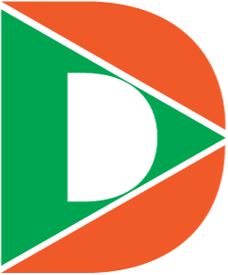Choosing The Right Mini Excavator For Your Construction Projects
Home improvement and construction projects depend heavily on the tools and machinery employed, and one of the most essential pieces of machinery is the so-called mini excavator. The success of your project can hinge on choosing the right excavator. A wrong choice can lead to delays, an increase in costs, and a possible failure to complete your project to your satisfaction as well.
Mini excavators are very versatile and can properly handle a wide variety of tasks, making them an ideal choice for a range of project types. Be it landscaping, construction, or minor demolition debris removal, the mini excavator can do it all efficiently and in a cost-effective manner. Still, selecting the particular mini excavator requires good knowledge about this machine.
Understanding Mini Excavators
A mini excavator, also known as a compact excavator, is a tracked or wheeled vehicle designed to perform excavation tasks with more flexibility and less capacity than larger construction machinery. Its main components include a boom, dipper, bucket, and cab mounted on a rotating platform known as the house, which sits on an undercarriage with tracks.
Small excavators are the best option because of their scalability, which allows you to tailor them to the needs of your project. The smaller size allows for operations in tighter spaces, generating less noise, and reducing ground damage. Understanding these characteristics can help fine-tune your selection for the most suitable machine.
The Different Types of Mini Excavators
Each project is unique and requires a certain type of mini-excavator. Understanding the different types of mini excavators and their unique features is a fundamental step in choosing the right tool for your project.
Generally speaking, mini excavators are categorized by their size and power output. The smaller ones, also known as micro-excavators, weigh less than a ton, have low horsepower, and are ideal for small-scale projects. Medium-sized mini excavators, on the other hand, are heavier, have increased horsepower, and tend to be used for larger, residential projects. Lastly, there are the large mini excavators, whose weight and power output make them suitable for industrial or commercial projects.

Key Factors to Consider when Choosing a Mini Excavator
When choosing a mini excavator, it’s crucial to consider factors like project size and scope, material type, site conditions, and cost. Larger, industrial projects require a more substantial machine; for smaller tasks, such as landscaping or backyard construction, a mini or micro excavator may be adequate.
The material type also affects the choice of excavator. Some mini excavators are specially designed for digging in rocky soil, while others are better suited to soft or mixed soils. Site conditions play a role as well. If you’re working on a tight or difficult-to-reach site, a smaller, more manoeuvrable mini excavator is an asset. Lastly, cost is always a consideration. The larger the mini excavator, the more expensive it is to purchase or rent.
Navigating the Market: Best Brands to Consider
There are numerous reputable mini excavator brands, each offering high-quality, reliable products. Caterpillar and Komatsu are notable names in the market, loved for their durable and efficient machines.
It’s advisable to review customer feedback and ratings before making a choice. Actual experiences regarding the performance and service of different brands can offer valuable insight into the brand’s reliability.
Renting vs. Buying: Which is best for your project?
The decision to rent or buy a mini excavator requires a deep understanding of your project’s specifics. Renting may be a more cost-effective solution for short-term or singular projects, while buying might be more economical for long-term or continuous work.
Buying a mini excavator means a larger upfront cost, but it’s a worthy investment if you frequently undertake projects requiring such machinery. Renting, however, avoids this initial cost and is ideal if you need the machine for a short period of time.
Understanding Aftercare and Maintenance
Regular maintenance extends the lifespan of the Tiny Digger, whether it is owned or rented. This means regular servicing, checking oil and hydraulic fluid levels, ensuring proper tyre pressure, and promptly addressing any issues. Proper storage when not in use, preferably in a covered, dry place, also prolongs the machine’s life.
Conclusion
Choosing the right mini excavator is a significant step towards ensuring the success of your project. Factors such as project requirements, cost, and size of the machine are key to making the right decision. Training in operational safety and regular maintenance ensures a longer lifespan and efficient operation of your mini excavator.

As a DIGITALTECHSIDE author, the majority of our articles have been focused on technology, blogging, business, lifestyle, social media, web design and development, e-commerce, money, health, education, entertainment, SEO, travel, and sports.
Contact us at digitaltechside@gmail.com if you have questions of anything.




